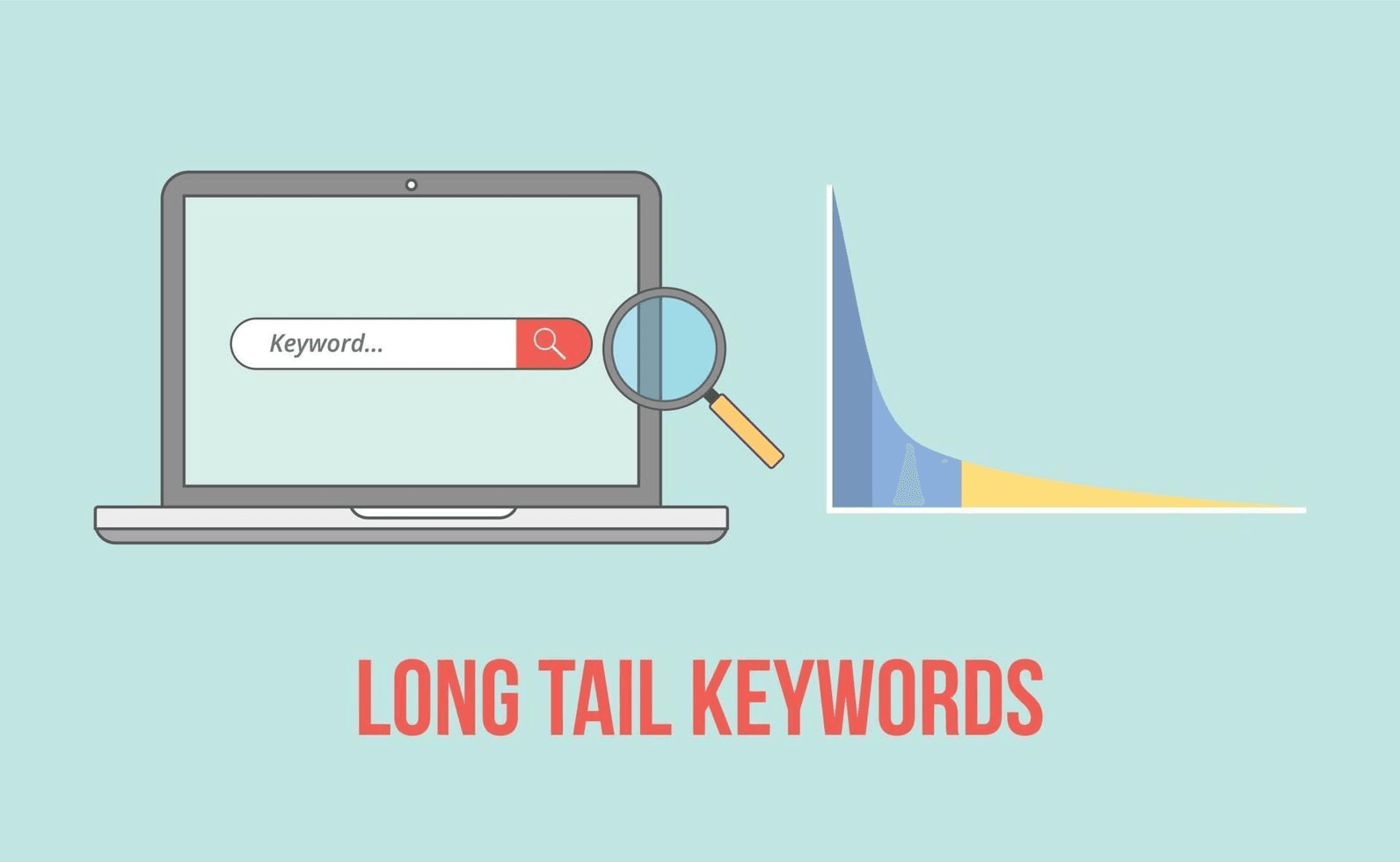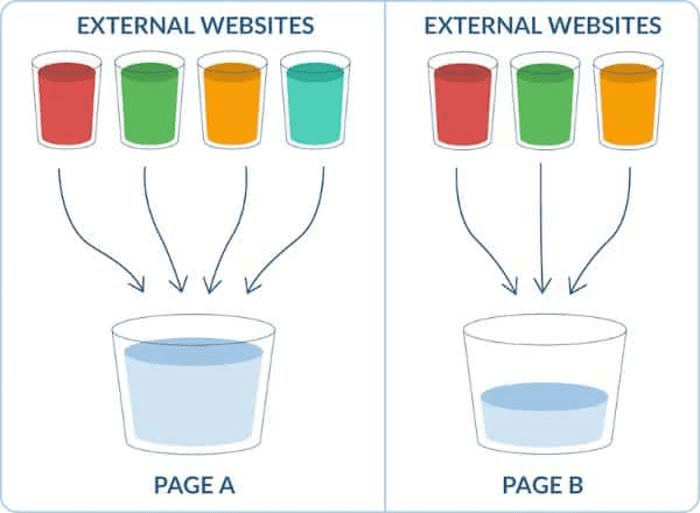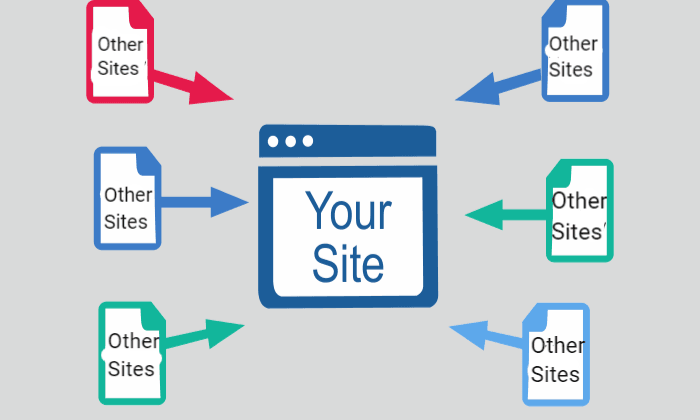Long-tail keywords are specific search phrases that attract targeted, high-conversion traffic to your website. They play a crucial role in SEO by reducing competition and driving relevant visitors. At Keyword Metrics, we break down the power of long-tail keywords to help you rank better and grow your business.
What are Long-Tail Keywords?
In SEO, long-tail keywords refer to longer and more specific search phrases that people are likely to use when they are closer to making a purchase or finding exactly what they want. While short, broad keywords might have high search volumes, long-tail keywords are generally more targeted, lower competition, and often more valuable in driving relevant traffic to your website.

They can help attract users with specific queries and are highly effective in improving SEO rankings and conversions.
How Long-Tail Keywords Work in SEO
Long-tail keywords are a key strategy for ranking in search engines. While broad keywords like “shoes” or “laptops” may get millions of searches, they are highly competitive and hard to rank for. Long-tail keywords, on the other hand, focus on specific topics, such as “comfortable running shoes for flat feet” or “best laptops for video editing under $1000.”
By targeting long-tail keywords, SEO professionals and businesses can rank higher for phrases that have less competition. This allows websites to attract more targeted visitors who are looking for exactly what they offer. For example:
- Short-tail keyword: “laptops”
- Long-tail keyword: “best gaming laptops under $1500”
Because the second example is more specific, it's easier for a website to rank for this term, especially if it’s well-optimized for that phrase.
Importance of Long-Tail Keywords in SEO
Higher Conversion Rates
One of the main benefits of long-tail keywords is their ability to drive higher conversion rates. Users searching for longer, more specific phrases are often further along in their buying journey, meaning they’re more likely to take action. For instance, someone searching for “buy organic baby clothes online” is likely to make a purchase soon, compared to someone simply searching for “baby clothes.”
Lower Competition
Broad keywords are extremely competitive because many websites are trying to rank for them. However, long-tail keywords, being more specific, face less competition. As a result, it's often easier to rank for them, especially if the content on your site matches what the user is searching for.
More Targeted Traffic
Long-tail keywords help businesses attract more relevant visitors. These are users who are searching for exactly what you offer, which can lead to better engagement and higher-quality traffic. For example, if you’re selling custom furniture, targeting a long-tail keyword like “custom wood coffee tables for modern homes” will attract users who are specifically interested in your product.
Tools for Long-Tail Keyword Optimization
When it comes to optimizing your website for long-tail keywords, using the right tools can make all the difference. These tools help you find, analyze, and track the performance of long-tail keywords, enabling you to optimize your content effectively and improve your SEO strategy.
Keyword Research Tools
Keyword research tools like Google Keyword Planner, Ahrefs, and SEMrush allow you to find long-tail keyword opportunities with low competition and high relevance to your niche. These tools give you insights into search volume, keyword difficulty, and related terms, helping you discover profitable keywords to target.
Content Optimization Tools
Once you've found your long-tail keywords, you need tools to help you optimize your content. Platforms like Surfer SEO and Frase analyze top-ranking pages and suggest changes to help your content rank better for your target keywords. They can help ensure your content matches user intent and includes relevant long-tail keywords.
SEO Auditing Tools
For those managing large websites, Keyword Metrics is an invaluable tool. It scans all your pages, finds keywords you already rank for but aren't fully targeting, and generates new content suggestions that can boost your rankings. With advanced filtering options, Keyword Metrics helps you audit your content faster and more efficiently, saving you hours of manual SEO work.
Pro Tips for Using Long-Tail Keywords Effectively
To make the most of long-tail keywords, here are some actionable tips to help improve your SEO strategy:
Use Keyword Research Tools
To identify the best long-tail keywords for your website, use keyword research tools. These tools will help you find long-tail keyword opportunities with a decent search volume and low competition.
Create High-Quality Content Around Long-Tail Keywords
Once you’ve identified your long-tail keywords, make sure your content aligns with those phrases. For example, if you target the long-tail keyword “how to build a backyard garden in 3 months,” create a detailed, step-by-step guide on the topic. This will not only improve your SEO but also provide valuable content to your audience.
Focus on User Intent
Understanding the intent behind a search is essential for effectively using long-tail keywords. Are users looking for information (informational intent), products to buy (transactional intent), or local services (local intent)? Tailor your content to match the intent behind the keywords you're targeting.
Optimize for Natural Language
As voice search becomes more popular, people are using longer, more conversational phrases in their searches. Think about how your potential audience might phrase their queries when speaking out loud. For instance, a voice search for “best restaurants near me” is more conversational than “best restaurants.”
Monitor Performance
Keep track of how well your long-tail keywords are performing. Use analytics tools like Google Analytics and Google Search Console to see which keywords are driving traffic to your site. Adjust your strategy based on which keywords are bringing in the most qualified traffic.
FAQs About Long-Tail Keywords
Q: Why are long-tail keywords important for SEO?
A: Long-tail keywords are important because they help businesses rank for more specific terms that face less competition. They also attract more targeted traffic, which can result in higher conversion rates.
Q: How can I find long-tail keywords?
A: You can use keyword research tools like Google Keyword Planner, Keyword Metrics, or Ahrefs to discover long-tail keywords relevant to your business.
Q: Are long-tail keywords still effective in SEO?
A: Yes! Long-tail keywords are still very effective because they help businesses rank for specific, niche topics with less competition, ultimately driving more qualified traffic to their websites.
Related Glossary Terms to Explore
- Keyword Research: Learn how to find the right keywords to target for your site.
- SEO: Discover how search engines rank your website and why long-tail keywords matter.
- Backlinking: Learn how linking from other websites can boost your SEO.


